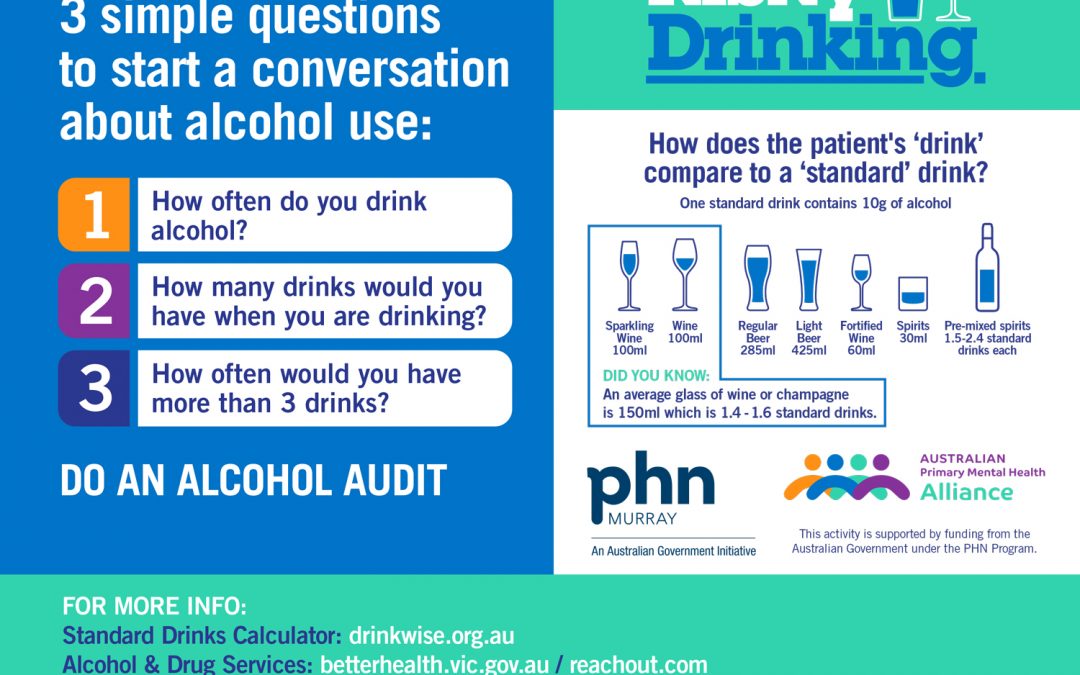Drinking alcohol in excess, or binge drinking, often goes undetected in our communities until alcohol related harms occur.
Alcohol screening and brief interventions (S&BI) have shown to be widely effective, however many primary care settings have had difficulty introducing this as a routine practice. In 2017, Murray PHN Needs Assessment indicated a number of alarming statistics including that “increases in ED presentations for AOD abuse induced mental health disorders and alcohol related deaths sitting at 33% above the Victorian average.”
In response to this, Murray PHN engaged Alaya to implement the Risky Drinking Project: Screening & Brief Interventions in General Practice to:
- Improve early interventions for people considered to be ‘at risk’
- Reduce harm associated with alcohol consumption and substance misuse
- Engage and upskill general practice more broadly in alcohol screening and brief intervention.
Now in 2019, Murray PHN has commissioned Alaya to build on previous Risky Drinking Project activity in the current General Practice Investment Strategy – Embedding Screening & Brief Intervention in General Practice.
Though this project, Alaya will work with six general practice cluster groups to:
- Develop a Community of Practice for the nurses employed within the clusters and build capacity of primary care staff to understand/embed S&BI (including use of AUDIT tool,etc.)
- Develop new/amend existing resources, medical software templates and web pages (eg Risky Drinking Project resources)
- Increase the knowledge of AOD screening and brief intervention tools in primary care. This will include CPD/RACGP applicable training, mentoring and more general troubleshooting support
- Increase the use of screening tools and the delivery of Brief Intervention for alcohol consumption and substance misuse within the General Practice setting.
Over the coming months, Alaya will begin to roll out phase 2 of this project in alignment with the above response.
Talk to us about our other change management projects in the primary care sector or check out our Risky Drinking page full of resources for clinicians, primary care staff and clients.

